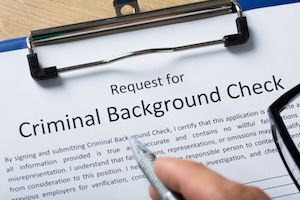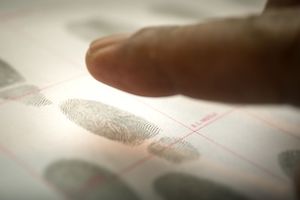Larceny Charges in Mecklenburg County
 Pleading guilty or being found guilty of larceny can be more than a minor blemish on your record and to your reputation. Potential employers, colleges, and friends and family don’t always view criminal charges as one-time mistake.
Pleading guilty or being found guilty of larceny can be more than a minor blemish on your record and to your reputation. Potential employers, colleges, and friends and family don’t always view criminal charges as one-time mistake.
That’s especially true for offenses characterized as Crimes of Dishonesty, Theft, or Moral Turpitude.
After completing any conditions of a Judgment and Commitment entered by the Court, which may include things like probation, Costs of Court, and even jail/prison in certain circumstances, the community and employers may view larceny charges as a character flaw of a dishonest person.
Even a conviction for misdemeanor larceny charges can affect your life and your long-term ability to attend college, receive scholarships, or advance your career.
“Unfortunately, sometimes that isn’t always entirely clear to people before they’re accused of shoplifting, larceny, or even a felony.”
– Bill Powers, Charlotte Criminal Defense Lawyer
Our legal team regularly helps people with larceny charges and very much understands the consequences to your name and reputation.
We take criminal charges seriously. We believe a strong defense is predicated on focused advocacy and a dedication to empathy in representing our clients’ best interests.
That begins from the initial consultation and continues throughout trial, assuming that’s is necessary. There may be legal options available to avoid a formal trial.
Prior to doing anything, it makes sense to sit down with our Charlotte larceny defense lawyers and formulate a plan.
You may have heard of Common Law offenses such as Grand Theft Larceny or Petty Theft. Indeed, some states still acknowledge such distinctions and/or legal definitions in the criminal laws.
If you have been charged with larceny in North Carolina, it may have been pursuant to N.C.G.S. § 14-72.
Chapter 14-72 covers felony or misdemeanor charges, meaning it sets forth what is misdemeanor larceny and what is felony larceny.
For example, if the goods or property at issue are worth less than $1,000, it could be a Class 1 Misdemeanor. Of course, that may not be the case if you’ve been accused of stealing or receiving stolen goods or things of value as an employee.
If the charges involve a “felony larceny” as defined in NCGS 14-72, the stated categorization of the offense is as a Class H Felony.
There are also instances when misdemeanor larceny charges, specifically those involving habitual misdemeanor larceny, may rise to the level of a felony for punishment purposes.
Subsection (b)(6) of NC Criminal Law § 14-72 authorizes prosecution as a felony if you have four (4) or more convictions of misdemeanor larceny, felony larceny, or “any offense deemed or punishable as larceny under this section.”
Application of the criminal laws to you and your case requires an individual, case-by-case analysis. Each case is different. Call now to schedule your free consultation with one of our experienced courtroom lawyers.
It’s important to remember the State of North Carolina, through the prosecutor’s office, has the Burden of Proof. The “ADA” (Assistant District Attorney) must present sufficient evidence Beyond a Reasonable Doubt that you:
- Took property, goods, or items of value
- You carried away those items (property)
- Without the consent of the owner
- With the intent to permanently deprive the owner of their property
- Larceny is a crime that requires specific intent (willfully/intentionally)
- A legitimate mistake or confusion regarding ownership may be a defense to larceny charges
Part of the role of defense counsel is to examine the fact-pattern, looking for holes or weaknesses in the State’s case. We also help explain how the criminal courts system works and what to expect if you’ve been arrested.
Larceny by an EmployeeTheft crimes involving a person in a position of trust or authority are technically different than ordinarily misdemeanor larceny and felony larceny charges.
Both Larceny by Employee and Embezzlement are felony charges in North Carolina.
Concealing property while at work and/or place of employment, with the intent to ultimately steal those items, may also constitute a type of felony larceny charge.
If the larceny involves an employee, the designation of “more or less than $1,000” value does not define the offense.
Taking or stealing something of any value from the employer is deemed a felony.
That is not to say the amount stolen is not considered.
If the larceny involves $100,000 or more, the NC criminal laws designate that as an extremely serious Class C felony. Amounts less than $100,000 remain punishable as a Class H Felony.
N.C.G.S. § 14-74 - Larceny by servants and other employees authorizes up to 231 months in prison for a Prior Record Level VI aggravated sentence!
The maximum period of incarceration in the NC DPS for a Class H Felony is 39 months.
Felony sentencing in North Carolina pursuant to Felony Punishment Chart is notoriously complex. If you have questions about the minimum and maximum punishments imposed, we strongly recommend you speak with legal counsel immediately.
Possession of Stolen Goods / Receiving Stolen GoodsN.C.G.S. §14-71, §14.71.1 or §14-72 set forth with particularity what is possession of stolen goods and what receiving stolen goods means.
If you receive property, knowing those items to be stolen or possess stolen property, chattel (personal property), money, a valuable security, or other items of value, that type of theft or larceny may amount to a felony larceny in North Carolina.
While each case is different, violations of the NC Possession of Stolen Goods laws may amount to a Class H Felony and carry a maximum period of incarceration of thirty-nine (39) months in prison.
As is the case for all criminal charges, your prior criminal history (prior record level/points) together with all other aggravating and mitigating factors are considered by the Court (the judge imposing the judgment and sentence).
Shoplifting in CharlotteOne common type of misdemeanor larceny in Charlotte involves the offense some call “shoplifting” or “concealment of goods.”
N.C.G.S. § 14-72.1 formally refers to shoplifting or unlawful concealment as Concealment of merchandise in mercantile establishments.
If you face allegations of intentionally concealing goods or merchandise in a store, even if you don’t leave the store or get out of the store with the items, a misdemeanor may ensue.
There are technical differences between shoplifting/concealment of goods and misdemeanor larceny. If the items are concealed and thereafter you exit the business/store, the charge ordinarily, without more, may be deemed misdemeanor larceny.
Changing price tags and manipulating scanning devices may also be subject to more substantial criminal prosecution.
First offender shoplifting charges may be sentenced as a Class 3 misdemeanor, the lowest level misdemeanor criminal charge in NC. Second offense shoplifting, if committed within three years of a conviction of the first offense, may qualify as a Class 2 misdemeanor.
Three or more shoplifting charges within a five-year period (from conviction date) enhance the potential maximum punishments and mandate a minimum active term of imprisonment “of at least 11 days.”
Shoplifting also can be deemed a felony offense if the theft involves interfering with anti-shoplifting devices and the associated technology. Similarly, tampering with security tags may result in prosecution as a Class H Felony.
If you have been accused of shoplifting charges in Mecklenburg County, we recommend you consult with our Charlotte Shoplifting lawyers at Powers Law Firm PA. Call NOW to schedule your confidential consultation: 704-342-4357
Penalties for Charlotte Larceny OffensesPunishments for either a misdemeanor or felony charge involving larceny offenses require consideration of aggravating and mitigating factors.
The sentencing Judge is given a significant amount of discretion, including reviewing your Prior Record Level, if any. Sentencing, depending on the type of charge, may include things like:
Community Punishment- Costs of Court
- Fines
- Community Service
- Community Service Fees
- Probation
- Unsupervised Probation
- Supervised Probation
- Restitution
- Territorial Restrictions
- Substance Abuse Assessment
- Mental Health Assessment
- ALL THE ABOVE PLUS
- Special Terms of Supervised Probation
- “Split Sentence” incarceration (jail)
- Intensive Probation
- House Arrest
- Electronic Monitoring
1. Active period of incarceration (jail/prison)
The nature and circumstances of each offense are considered, together with all other relevant evidence regarding factors in aggravation and mitigation.
Sentencing in North Carolina for criminal charges is notoriously complex. We strongly recommend you retain experienced legal counsel and limit all communications with friends, family, and law enforcement.
Communications with our criminal defense attorneys and law firm staff are subject to attorney-client privilege. Exercise your 5th Amendment Right to Remain Silent and your 6th Amendment Right to Legal Counsel.
Our team of Charlotte lawyers is available for immediate consultation. You may reach a larceny defense attorney at Powers Law Firm PA at 704-342-4357
Misdemeanor Larceny Punishments in Charlotte, NCIf you’ve been arrested and/or charged with misdemeanor larceny in Charlotte, we recommend you immediately retain legal representation.
“A strong defense often begins early on, when counsel can help explain the best-case and worst-case scenarios. Limiting communications and therefore potential evidence against the accused is a really good idea.”
– Bill Powers
Misdemeanor larceny punishments depend prior criminal history points and any factors of mitigation or aggravation relevant to your case/charges.
The misdemeanor punishment chart/grid sets forth the maximum and minimum punishments for criminal charges in North Carolina.
If you or a loved one has legal questions regarding your misdemeanor larceny offense, contact one of our experienced Charlotte criminal defense lawyers at Powers Law Firm PA.
Felony Larceny PunishmentsIf you have been accused of stealing goods or items that are valued more than $1,000, we recommend you consult with a criminal lawyer about possible felony larceny in Mecklenburg County.
Timing may be key. Politely decline to answer questions or “clear things up” with law enforcement officers, loss prevention, and police.
We also encourage you to limit conversations with well-meaning friends and family. Fifth Amendment Rights and Miranda Warnings may not apply to voluntarily statements and/or in NON-custodial circumstances.
Everything you discuss with a criminal defense attorney, even if only in consultation, is subject to attorney-client privilege.
Felony larceny punishments range from supervised probation to long, active prison terms. Each client, like each case, is unique. Seek legal counsel immediately.
Your matter deserves the attention of an experienced handling felony larceny offenses. Indeed, we believe it helps for your attorney to have significant courtroom experience.
If you’d like more information about the consequences of a conviction and the possible penalties, relative to you and your charges, contact Powers Law Firm PA at: 704-342-4357
Expungement of Larceny Charges in Charlotte, NC: Expunctions and Clearing Your Record Eligibility for an expunction of charges is subject to the NC criminal laws and necessitates a careful review of the record.
Eligibility for an expunction of charges is subject to the NC criminal laws and necessitates a careful review of the record.
Depending on the nature and circumstances of the offense, together with prior criminal history/record, there may be a possibility to have a misdemeanor larceny expunged in North Carolina after the passage of time.
Expungement of larceny charges in Charlotte, NC is NOT automatic. The dismissal of charges does not automatically result in an expungement or expunction of a criminal record.
One must file the proper paperwork for an expungement.
If your larceny charge was dismissed (either felony larceny or misdemeanor larceny), or in the event you were found NOT GUILTY, an expunction of the arrest may be a legal option to you.
If you have questions about eligibility for an expunction of your record, including expunging larceny charges, call the Powers Law Firm PA. 704-342-4357
Helpful Information About Criminal Charges Powers Law Firm PA Home
Powers Law Firm PA Home














